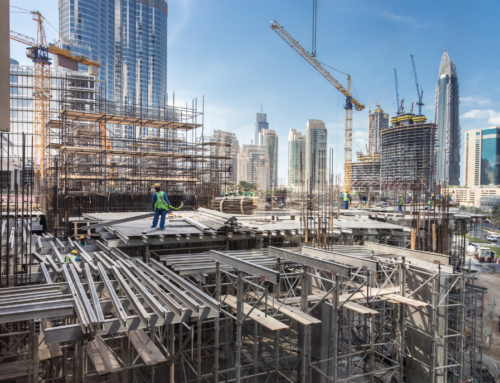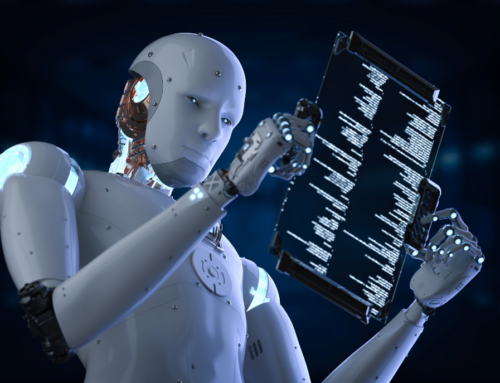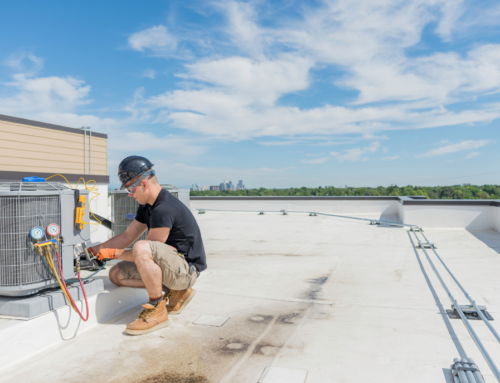The integration of artificial intelligence (AI) and automation into various industries is rapidly reshaping the way businesses operate, and the recruitment process is no exception. In sectors like construction, engineering, and other related industries within the built environment, the impact of AI and automation is being felt across the entire talent acquisition lifecycle. From sourcing candidates to streamlining hiring processes and improving overall efficiency, these technologies are transforming how firms recruit and manage talent.
As we move forward into a more technologically advanced future, it’s clear that AI and automation will continue to play a pivotal role in recruitment. However, with these advancements come shifts in the types of skills and competencies that will be required for both recruiters and candidates. Let’s take a deeper look at how AI and automation are affecting recruitment in the built environment and the new skillsets that will be necessary for success.
- AI-Powered Candidate Sourcing and Screening
Traditionally, sourcing candidates for roles in construction, engineering, and architecture has been a time-consuming and labor-intensive process. Recruiters often have to sift through hundreds or even thousands of resumes to identify the most suitable candidates for a given role. This process can lead to inefficiencies and, in some cases, biases that limit the diversity and quality of the talent pool.
AI-powered tools are now revolutionizing this aspect of recruitment by automating the initial stages of candidate sourcing and screening. Machine learning algorithms can quickly scan resumes, LinkedIn profiles, and other candidate data sources to identify the best-fit candidates based on key qualifications, experience, and skillsets. These AI systems can be trained to recognize relevant keywords and patterns, reducing the time it takes to shortlist potential candidates.
AI tools also have the ability to analyze large volumes of candidate data, enabling recruitment teams to identify passive candidates who might not be actively applying for roles but have the potential to be a good fit. By tapping into data from job boards, professional networks, and other platforms, recruiters can use AI to find hidden talent that would otherwise be difficult to discover.
- Automating Administrative Tasks
Recruiters in the built environment often spend a significant amount of time on administrative tasks such as scheduling interviews, managing candidate communications, and handling paperwork. These tasks, while essential, can be repetitive and time-consuming. Automation is changing this by streamlining the workflow and reducing the administrative burden on recruitment teams.
For example, AI-driven chatbots are increasingly being used to engage with candidates in real-time, answering common questions about the job, company, and hiring process. These chatbots can also automate the initial stages of candidate interviews by asking pre-screening questions, collecting responses, and even ranking candidates based on their answers. This allows recruiters to focus on the more strategic aspects of the hiring process, such as relationship-building and final candidate assessments.
Additionally, automated scheduling tools can take the hassle out of coordinating interviews, sending out reminders, and following up with candidates. This ensures that the hiring process remains efficient and that no opportunities are lost due to logistical delays.
- Enhanced Candidate Experience
A streamlined and efficient recruitment process not only benefits recruiters but also enhances the overall candidate experience. In the competitive fields of construction, engineering, and architecture, candidates want a smooth, transparent, and timely application process.
AI-driven systems can create a more personalized experience for candidates by providing tailored job recommendations based on their skills, experience, and preferences. This can help reduce the frustration often associated with applying to multiple roles that may not be the best fit. Additionally, AI tools can provide candidates with real-time updates on the status of their applications, keeping them informed throughout the process and improving overall communication.
Furthermore, automated systems can help ensure that candidates’ applications are evaluated more objectively, reducing human biases and fostering a more diverse and inclusive hiring process. This can be particularly important in industries like construction, where there has historically been a lack of diversity, and employers are increasingly looking to attract a broader range of talent.
- AI and Automation in Skills Assessment
In industries such as construction and engineering, assessing technical skills is critical. Traditional interviews and resume reviews may not always provide a clear picture of a candidate’s capabilities. AI and automation are changing the way employers evaluate skills and competencies, providing more accurate and objective assessments.
Skills assessment platforms powered by AI can simulate real-world tasks and challenges that candidates might face on the job, testing them on everything from problem-solving abilities to technical knowledge. These tools can assess a candidate’s aptitude in areas such as construction project management, engineering design, or the use of specific tools and software. By leveraging these assessments, companies can make data-driven hiring decisions, ensuring they select candidates with the right skills and abilities for the job.
Moreover, AI can continuously track and measure skills over time, providing insights into which candidates are most likely to succeed in the role based on their past performance. This can significantly reduce the risk of hiring mismatches and help employers make more informed decisions.
- The Evolving Skillset for Recruiters
As AI and automation play an increasingly important role in recruitment, it’s essential for recruiters in the built environment to evolve their own skillsets. While AI can automate many aspects of the recruitment process, human judgment and relationship-building remain invaluable. Recruiters will need to develop new competencies in order to work effectively alongside AI systems.
One key skill will be data analysis. Recruiters will need to be able to interpret the data generated by AI systems, identifying trends and insights that can improve the recruitment process. Additionally, recruiters will need to become proficient in using AI-powered recruitment tools and platforms, understanding how to leverage technology to streamline their workflows.
At the same time, human skills such as empathy, communication, and negotiation will remain essential. While AI can help automate many tasks, it cannot replace the personal touch that recruiters provide when engaging with candidates and clients. The combination of AI-driven efficiency and human expertise will be the key to successful recruitment in the built environment moving forward.
- New Skillsets for Candidates
With the increasing reliance on AI and automation in recruitment, candidates in the built environment will also need to adapt. In 2025 and beyond, technical proficiency with digital tools and technologies will be a significant asset. Whether it’s proficiency in construction management software, the ability to work with AI-powered tools for design and project planning, or familiarity with automation systems used on construction sites, these technical skills will be in high demand.
In addition to technical skills, candidates will need to develop “soft” skills that complement AI and automation. For example, as AI handles many repetitive tasks, workers will need to focus on creativity, problem-solving, leadership, and collaboration. The ability to work effectively in teams, think critically, and navigate complex challenges will continue to be valuable in the built environment.
AI and automation are significantly transforming recruitment in the built environment, making it more efficient, data-driven, and candidate-friendly. These technologies are streamlining tasks such as sourcing, screening, and administrative work, while also enhancing the candidate experience and enabling more accurate skills assessments.
As the industry evolves, recruitment professionals will need to adapt by developing new skills, such as data analysis and proficiency with AI tools, while continuing to rely on their human expertise for relationship-building and decision-making. Likewise, candidates will need to embrace new technologies and focus on developing a combination of technical and soft skills to remain competitive in the rapidly changing landscape.
The future of recruitment in construction, engineering, and related industries is one where AI and automation work in tandem with human expertise, creating a more efficient, effective, and inclusive process for hiring the talent that will shape the built environment of tomorrow.








Leave A Comment